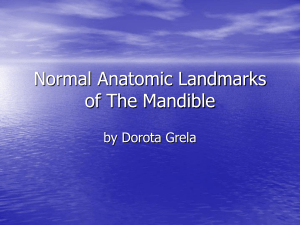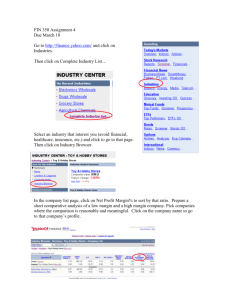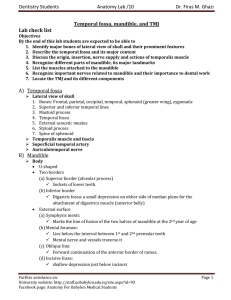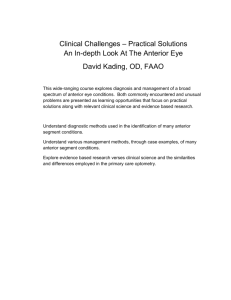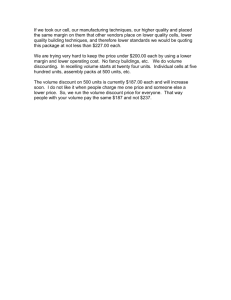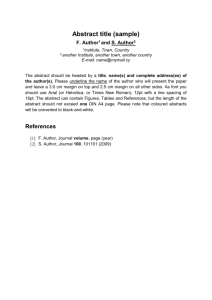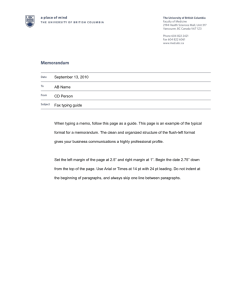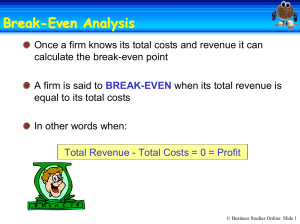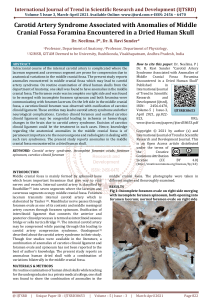Slide 1
advertisement
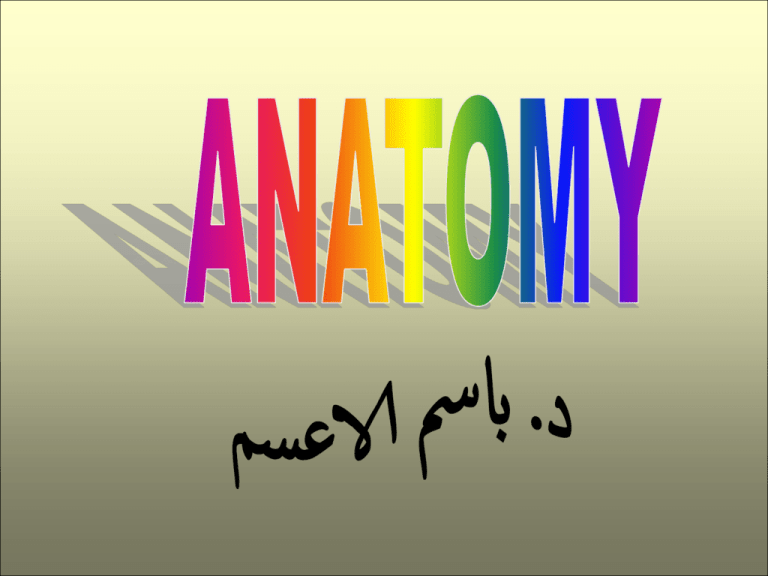
a a horseshoe-shaped body a pair of rami The body of two lateral parts which are united anteriorly in the midline where a vertical ridge, the symphysis menti, indicates the site of the fusion. The ridge of the symphysis menti terminated below in the mental protuberance The ramus projecting upwards from the body posteriorly on each side, which is flattened vertical plate of bone The angle The posterior margin of the ramus meets the lower border of the body The coronoid process the mandibular notch The Condyloid process a head with an articular surface above a lower narrower portion, the neck The head articulates with the squamous part of the temporal bone at the tempromandibular joint. The alveolar margin the base the mental foramen The oblique line passes upwards and backwards from the mental foramen and becomes continuous with the anterior margin of the ramus. The digastric fossa small roughened depression on the base, on the either side of the symphysis menti The inner aspect the mental spines The mylohyoid ridge The sublingual fossa The submandibular fossa Two small tubercles lie close to the midline Two small tubercles lie close to the midline The lingual nerve lies on the bone just above the posterior end of the mylohyoid ridge. The mandibular foramen At about the middle of the inner surface of the ramus, about the level of the crown of the last molar tooth The sharp and prominent anterior margin of the foramen is called the lingula The mandibular canal the mylohyoid groove The head The heada convex and transversely elongated articular surface The long axis of the head is directed obliquely so that if the axes of both sides were continued medially they would meet near the anterior margin of the foramen magnum, at an angle of 140-159. The coronoid process directed upwards as a flattened triangular projection directed upwards as a flattened triangular projection Its anterior border is continuous with the sharp anterior margin of the ramus.
